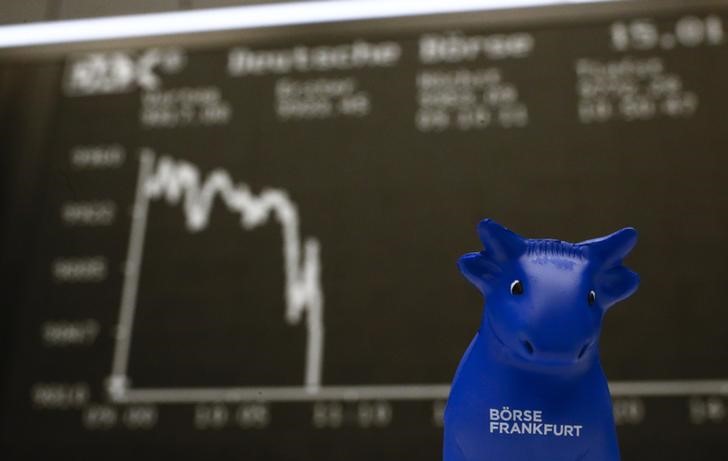European Stock Futures Lower; U.S. Inflation Release Looms Large
2022.07.12 13:46

Budrigannews.com – European stock markets are expected to open lower Tuesday, continuing the negative start to the week with investors fretting about a worsening energy crisis ahead of the release of a highly-anticipated U.S. inflation report.
At 02:00 AM ET (0600 GMT), the DAX futures contract in Germany traded 0.9% lower, CAC 40 futures in France dropped 0.9%, and the FTSE 100 futures contract in the U.K. fell 0.4%.
European indices closed mostly lower Monday, with the DAX ending 1.4% lower, for example, as investors awaited the release of this week’s key U.S. inflation data.
Global stock markets have suffered this year as a number of central banks, and the U.S. Federal Reserve in particular, have started aggressively raising interest rates to try and rein in rampant inflation.
The U.S. consumer price index is due on Wednesday, and is expected to show an 8.8% year-over-year increase and a 1.1% month-over-month increase in June.
Such a release would likely give the green light to the Fed to hike by 75 basis points later this month, matching June’s increase, which was the biggest increase by the U.S. central bank since 1994.
Also dragging on sentiment are fears of worsening of the global energy crisis as the biggest pipeline carrying Russian gas to Germany began 10 days of annual maintenance. Fears are growing that the shutdown might be extended, especially as the European Union is preparing to impose a phased embargo on Russian oil and ban maritime insurance for any tanker that carries Russian oil.
The main economic data release scheduled for Tuesday is the ZEW economic sentiment index for July from Germany, which is expected to weaken substantially as growth slows in Europe’s leading economy.
In corporate news, Norway’s biggest bank DnB (OL:DNB) reported quarterly earnings above forecasts, supported by interest rate hikes and high activity levels in the Norwegian economy.
Oil prices fell Tuesday as fresh COVID restrictions in China, the world’s biggest importer of crude, weighed heavily on demand expectations.
Several Chinese cities are adopting fresh curbs to attempt to stop the spreading of the highly infectious BA.5 Omicron subvariant of the COVD-19 virus, with close to 30 million people now under some form of movement restrictions.
Strict lockdowns earlier in the year, primarily in the commercial hub of Shanghai, had a significant impact on the country’s economic activity and thus the demand for crude.
By 02:05 AM ET, U.S. crude futures traded 2% lower at $102.02 a barrel, while the Brent contract fell 1.8% to $105.17.
Additionally, gold futures fell 0.3% to $1,726.30/oz, while EUR/USD traded 0.2% lower at 1.0016.








